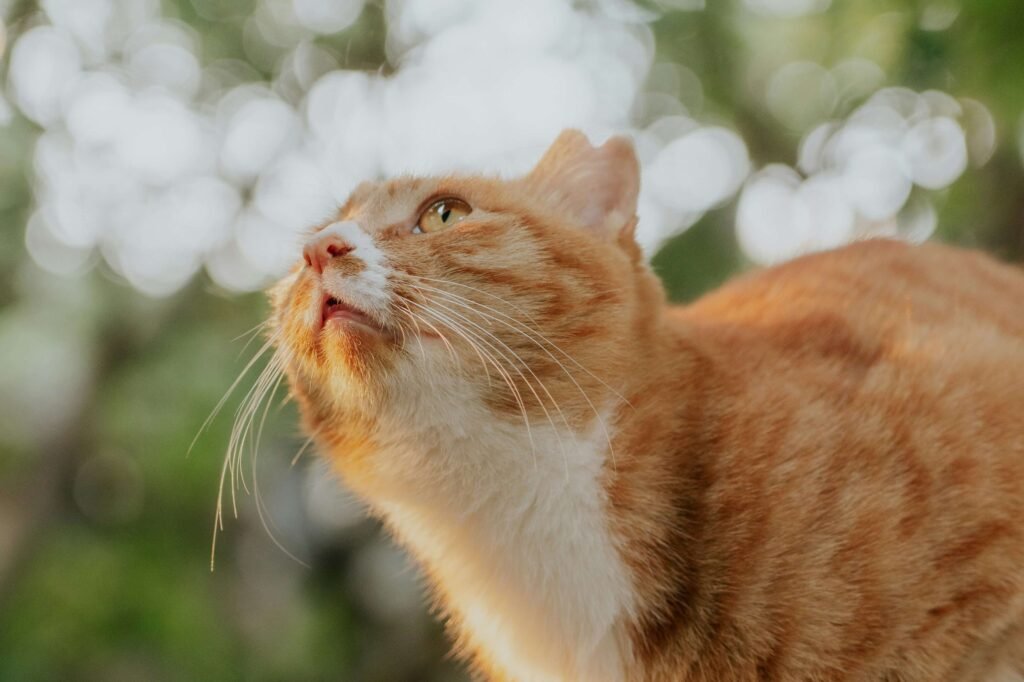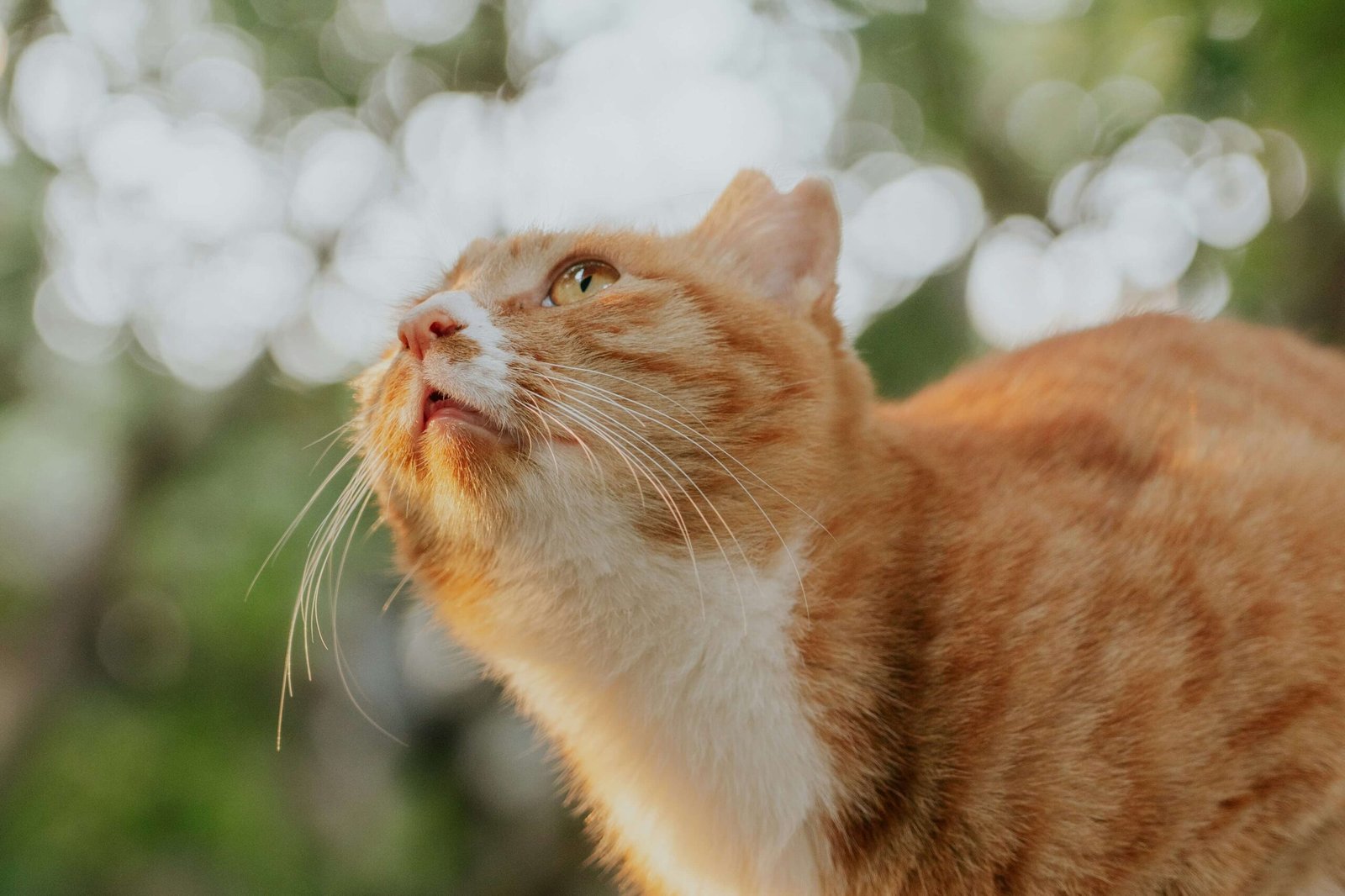Cat Losing Hair Around Eyes
Noticing your cat losing hair around their eyes can be concerning, but it’s a common issue with various potential causes. Hair loss in this area can stem from medical conditions, allergies, parasites, or even behavioral factors like excessive grooming. While some cases are harmless and resolve on their own, others may require veterinary attention to address underlying health issues. As a cat owner, understanding the possible causes, symptoms, and treatment options is essential for ensuring your feline friend stays healthy and comfortable. In this blog post, we’ll explore everything you need to know about why cats lose hair around their eyes and how to help them recover.
Common Causes of Hair Loss Around a Cat’s Eyes
Hair loss around a cat’s eyes can result from a variety of factors, ranging from mild irritations to more serious health concerns. Here are some of the most common causes:
Allergies : Environmental allergens like pollen, dust, or food sensitivities can lead to itching and hair loss.
Parasites : Fleas, mites, or lice can cause intense scratching, leading to bald patches around the eyes.
Fungal Infections : Ringworm, a common fungal infection, often targets areas around the face and eyes.
Bacterial Infections : Bacterial skin infections can irritate the skin and result in hair loss.
Behavioral Issues : Excessive grooming due to stress or anxiety can cause self-induced hair loss.
Identifying the root cause is crucial for determining the appropriate treatment and preventing further hair loss.
Symptoms to Watch For
If your cat is losing hair around their eyes, there are other signs that can help you determine the underlying issue. Here’s what to look out for:
Redness or Irritation : Inflamed skin around the eyes may indicate an allergic reaction or infection.
Crusting or Scabbing : These could be signs of a parasitic or fungal infection.
Excessive Grooming : If your cat is obsessively licking or scratching the area, it may point to discomfort or stress.
Odor : A foul smell near the affected area could suggest a bacterial or fungal infection.
Behavioral Changes : Lethargy, irritability, or changes in eating habits may accompany skin issues.
Recognizing these symptoms early can help you address the problem before it worsens and ensure your cat gets the care they need.
Check this guide 👉How Many Hairs Does a Cat Have? Best 7 Expert Tips!
Check this guide 👉American Longhair Cat: Best 7 Expert Tips!
Check this guide 👉Why Is My Cat Eating My Hair? Best 7 Expert Tips!

Common Causes of Hair Loss | Signs to Look For |
|---|---|
Allergies (food or environmental) | Redness, itching, sneezing |
Parasites (fleas, mites, lice) | Scratching, scabbing, visible parasites |
Fungal Infections (ringworm) | Circular bald patches, crusty skin |
Bacterial Infections | Odor, redness, pus-filled sores |
Behavioral Issues (over-grooming) | Bald spots, obsessive licking |
Treatment Options for Hair Loss Around the Eyes
The treatment for hair loss depends on the underlying cause, but there are several approaches that can help restore your cat’s coat and comfort. Here’s what you can do:
Veterinary Diagnosis : Visit your vet to confirm the cause through tests like skin scrapings or allergy screenings.
Medicated Shampoos : For fungal or bacterial infections, medicated shampoos can soothe the skin and promote healing.
Antibiotics or Antifungals : Oral or topical medications may be prescribed to treat infections.
Flea and Parasite Control : Use vet-recommended treatments to eliminate fleas, mites, or lice.
Dietary Adjustments : Switching to hypoallergenic or limited-ingredient diets can help manage food allergies.
Consulting your veterinarian is essential to tailor the treatment plan to your cat’s specific needs.
Preventive Measures to Reduce Hair Loss
Preventing hair loss around the eyes involves addressing potential triggers and maintaining your cat’s overall health. Here are some proactive steps:
Regular Grooming : Brush your cat’s fur regularly to remove loose hair and reduce the risk of matting.
Parasite Prevention : Keep up with flea and tick treatments to avoid infestations.
Clean Environment : Vacuum frequently and wash bedding to minimize allergens like dust or pollen.
Stress Reduction : Provide enrichment toys and a calm environment to reduce anxiety-related grooming.
Routine Vet Checkups : Schedule regular visits to catch and address any health issues early.
By taking these preventive measures, you can minimize the risk of hair loss and keep your cat’s coat healthy and shiny.
Signs of Allergies in Cats
Allergies are one of the most common causes of hair loss around a cat’s eyes. Recognizing the signs early can help you address the issue promptly. Here’s what to look for:
Sneezing or Coughing : Respiratory symptoms often accompany environmental or food allergies.
Itchy Skin : Persistent scratching or rubbing can indicate an allergic reaction.
Watery Eyes : Excessive tearing or redness around the eyes may signal irritation.
Digestive Issues : Vomiting or diarrhea can occur if the allergy is food-related.
Hair Loss in Specific Areas : Bald patches around the eyes, ears, or paws are common in cats with allergies.
If you suspect your cat has allergies, consult your vet to identify the trigger and develop a management plan.
How to Reduce Stress-Induced Hair Loss
Stress and anxiety can lead to excessive grooming, resulting in hair loss around sensitive areas like the eyes. Here are some ways to create a calming environment for your cat:
Provide Safe Spaces : Set up cozy hiding spots where your cat can retreat when feeling overwhelmed.
Interactive Toys : Stimulate your cat’s mind with toys that encourage play and exploration.
Routine Feeding : Stick to a consistent feeding schedule to provide stability and predictability.
Minimize Loud Noises : Keep noise levels low to avoid startling or stressing your cat.
Pheromone Diffusers : Use products like Feliway to create a soothing atmosphere at home.
By reducing stressors and promoting relaxation, you can help your cat feel more secure and reduce stress-related hair loss.
Natural Remedies for Mild Hair Loss
For minor cases of hair loss around the eyes, natural remedies can provide relief without the need for medication. Here are some safe options to consider:
Coconut Oil : Apply a small amount to irritated skin to moisturize and reduce inflammation.
Aloe Vera Gel : Soothe irritated skin with pure, pet-safe aloe vera gel.
Chamomile Tea Rinse : Use cooled chamomile tea as a gentle rinse to calm inflamed areas.
Probiotics : Add probiotic supplements to your cat’s diet to support gut health and reduce food-related allergies.
Oatmeal Baths : A mild oatmeal-based shampoo can relieve itching and promote healing.
While these remedies can help with mild issues, always consult your vet before trying new treatments, especially for persistent or severe hair loss.
Frequently Asked Questions About Cat Hair Loss Around Eyes
Why is my cat losing hair around their eyes?
Hair loss can result from allergies, parasites, infections, or behavioral issues like over-grooming.
Is hair loss around the eyes dangerous?
It depends on the cause—some cases are harmless, while others may require veterinary treatment.
Can I treat my cat’s hair loss at home?
Mild cases may improve with grooming or parasite control, but consult your vet for persistent or severe issues.
How long does it take for a cat’s hair to grow back?
Hair regrowth varies depending on the cause and treatment, typically taking weeks to months.
What should I do if my cat is scratching excessively?
Address the underlying cause with vet guidance and prevent further irritation with protective measures like an Elizabethan collar.
Supporting Your Cat Through Hair Loss
Hair loss around your cat’s eyes can be unsettling, but with the right knowledge and care, you can help them recover and prevent future issues. Whether it’s addressing allergies, treating infections, or reducing stress, understanding the root cause is key to finding an effective solution. Always consult your veterinarian for professional advice tailored to your cat’s unique needs. By staying vigilant and providing a loving, supportive environment, you can ensure your feline companion remains happy, healthy, and comfortable for years to come.
Dog Tapeworm Life Cycle: Best 7 Expert Tips! – Learn how tapeworms infect dogs, spot symptoms, and break the cycle with expert prevention strategies.
Anxious Cat Body Language: Best 7 Expert Tips! – Learn to spot signs of stress, understand triggers, and help your cat feel safe and relaxed.
Anxious Dog Body Language: Best 7 Expert Tips! – Learn to spot signs of anxiety, respond effectively, and help your dog feel safe and secure.
Is Breeding Dogs Bad? Best 7 Expert Tips! – Explore the ethics, benefits, and risks of dog breeding to make informed decisions for a better future.





